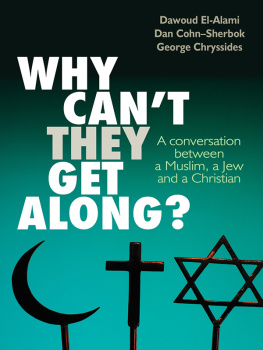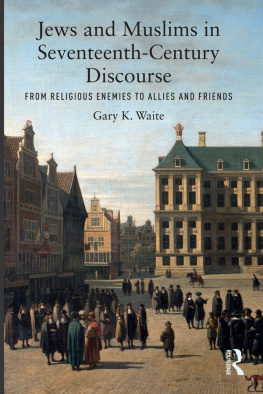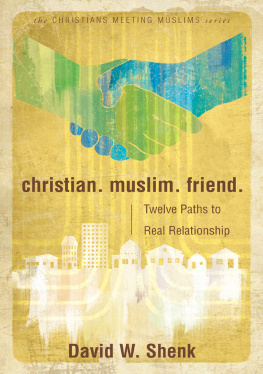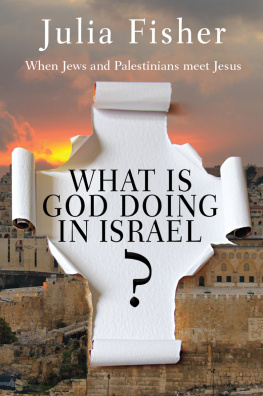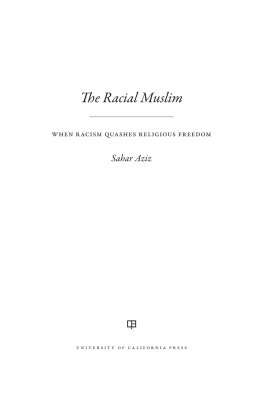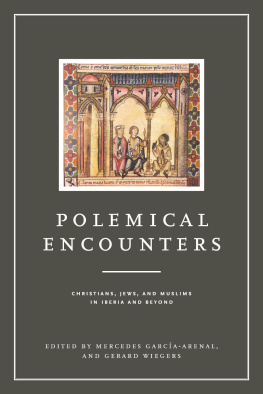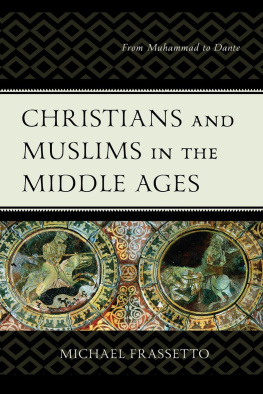The contributors candid and critical trialogue about their respective religious beliefs and traditions shows that whether they agree or disagree, and they do both, they can indeed get along.
HRH Princess Badiya of Jordan
This is a profoundly helpful and timely book. It offers a model of what respectful dialogue between the Abrahamic faiths can reveal and in so doing removes popular misunderstandings and confusions and lifts the conversation onto an honest evaluation of difference and complementarity. The practical focus on how believers from all three faiths address life questions and make moral decisions and judgments is also really useful. The authors faith commitments give the book a key ingredient: lived expertise and humility in the face of what they try to present to us. This is a book that every leader of a faith community ought to read and be able to commend.
The Very Reverend Adrian Dorber, Dean of Lichfield
This absorbing book is a model of a new type of interfaith dialogue no longer afraid to confront where and why the three Abrahamic faiths part company. It could well prove humanitys best, if not only, hope of peacefully resolving some of its oldest and most intractable conflicts.
Professor David Conway, Visiting Senior Research Fellow at Civitas, Institute for the Study of Civil Society
This open and honest book confirms my conviction developed over many years that humane and responsive practitioners of different religions have more in common with each other than they do with the rigid literalists of their own religion. A Jew, a Christian and a Muslim, each learned in their own faith, eloquently outline the beliefs of their tradition, illustrate how much they share, and where they differ point out those differences with the courtesy and respect that has to be the precondition of any serious interfaith dialogue.
Rabbi Dr David J. Goldberg OBE, Emeritus Rabbi, The Liberal Jewish Synagogue, London
A most illuminating and unparalleled introduction to the complexities and rewards of genuine interfaith dialogue. The richness and uniqueness of this book lies in how the authors from their vastly different and distinctive cultural backgrounds, and from years of personal and mature reflection engage in a conversation with openness and respect that must surely persuade the reader of the need for understanding and tolerance towards the beliefs and sensitivities of all those who share the heritage of Abraham. An authoritative, yet most accessible, distillation of what can unite but also what can separate the peoples of the book.
Professor Martin OKane, University of Wales Trinity Saint David
El-Alami, Cohn-Sherbok, and Chryssides have produced a genuine inter-religious conversation, providing the reader with a delightful Abrahamic encounter. This book consists of a series of honest dialogues between a Jew, Christian, and Muslim, which result in an engaging narrative of co-existence.
Dr Edward Kessler MBE, Founder Director, Woolf Institute, Cambridge
In the twenty-first century, religious conflict and extremism continues to result in violence and destruction despite all three of the Abrahamic faiths calling for peace, pluralism, and co-existence. This timely book is essential reading in emphasising the importance of honest and constructive dialogue between Jews, Muslims, and Christians and in highlighting that as human beings, there is far more that unites us than divides us.
Sara Khan, Director, Inspire
Why Cant They Get Along is an invaluable text for undergraduate religious studies. It is generally valuable in providing students with the example of interfaith dialogue, demonstrating how one can discuss controversial issues in a respectful manner whilst maintaining the integrity of ones faith position.
It is specifically valuable for undergraduate students as an exploration of the methodology of interfaith dialogue, and as an insight to the details of the position of each faith on featured topics.
Rather than just going over the old ground of controversy, there are attempts by these experienced scholars, who have some understanding of each others traditions, to offer solutions to the historical impasse.
Dr Deirdre Burke, Religious Studies, University of Wolverhampton
This is a model of what dialogue should be: spelling out overlaps and differences, while taking both seriously. Best of all, the authors attend to detail. We are not all going the same way, yet we have much to love and much to grapple with in what seem to be roughly equal proportions. Both the loving and the grappling must continue in this vein.
The Very Reverend Christopher Lewis, Dean of Christ Church, Oxford
WHY CANT THEY GET ALONG?
A conversation between a Muslim, a Jew and a Christian
Dawoud El-Alami
Dan Cohn-Sherbok
George D. Chryssides

Text copyright 2014 George D. Chryssides, Dan Cohn-Sherbok, and Dawoud El-Alami
This edition copyright 2014 Lion Hudson
The right of George D. Chryssides, Dan Cohn-Sherbok, and Dawoud El-Alami to be identified as the author of this work has been asserted by them in accordance with the Copyright, Designs and Patents Act 1988.
All rights reserved. No part of this publication may be reproduced or transmitted in any form or by any means, electronic or mechanical, including photocopy, recording, or any information storage and retrieval system, without permission in writing from the publisher.
Published by Lion Books
an imprint of
Lion Hudson plc
Wilkinson House, Jordan Hill Road,
Oxford OX2 8DR, England
www.lionhudson.com/lion
ISBN 978 0 7459 5605 3
e-ISBN 978 0 7459 5756 2
Acknowledgments
Extracts from the Quran: Saheeh International, The Quran: English Meanings and Notes , Riyadh: Al-Muntada Al-Islami Trust, 2001-2011; Jeddah: Dar Abul-Qasim 1997-2001.
Extract taken from Peter Vardy, Good and Bad Religion, SCM Press 2010 Peter Vardy. Used by permission of Hymns Ancient & Modern Ltd.
Cover image Sebastien Desarmaux / GODONG/Godong/Corbis
A catalogue record for this book is available from the British Library
Printed and bound in the UK, April 2014, LH26
CONTENTS

FOREWORD

Ignorance of other peoples religious beliefs and practices is a cause of much misunderstanding and dangerous prejudice and may embitter communal tensions. This timely book gives a clear summary of the teachings of Judaism, Christianity, and Islam and of the way of life that is expected of their respective followers; by juxtaposing them it makes it easy to see where they agree and where they disagree.
Each of the three authors Professor Dan Cohn-Sherbok, Dr George D. Chryssides, and Dr Dawoud Sudqi El-Alami has long experience of teaching and writing about his own religion and has studied other religions. They are, therefore, very well qualified to show where the three religions converge and diverge.
Sometimes, when members of different faiths meet and converse, out of politeness and fear of offence, they avoid contentious subjects. Where, however, there is genuine friendship and trust, asking difficult questions helps one to learn more about what another person really believes. At the same time, answering the others questions encourages one to reflect more carefully on ones own religious path and to see more clearly what is essential to it and what is culturally conditioned and the contributors to this book are not afraid to question their own religion as well as the religions of their colleagues.

